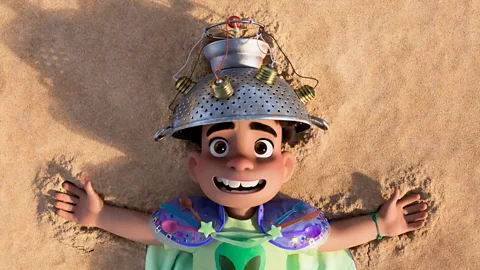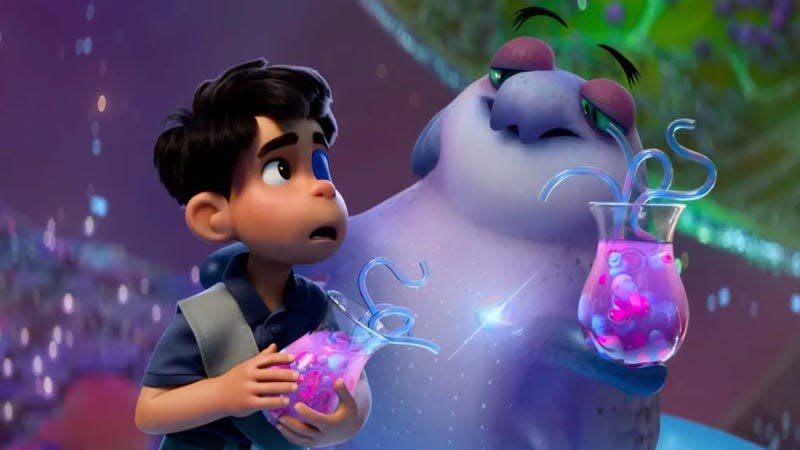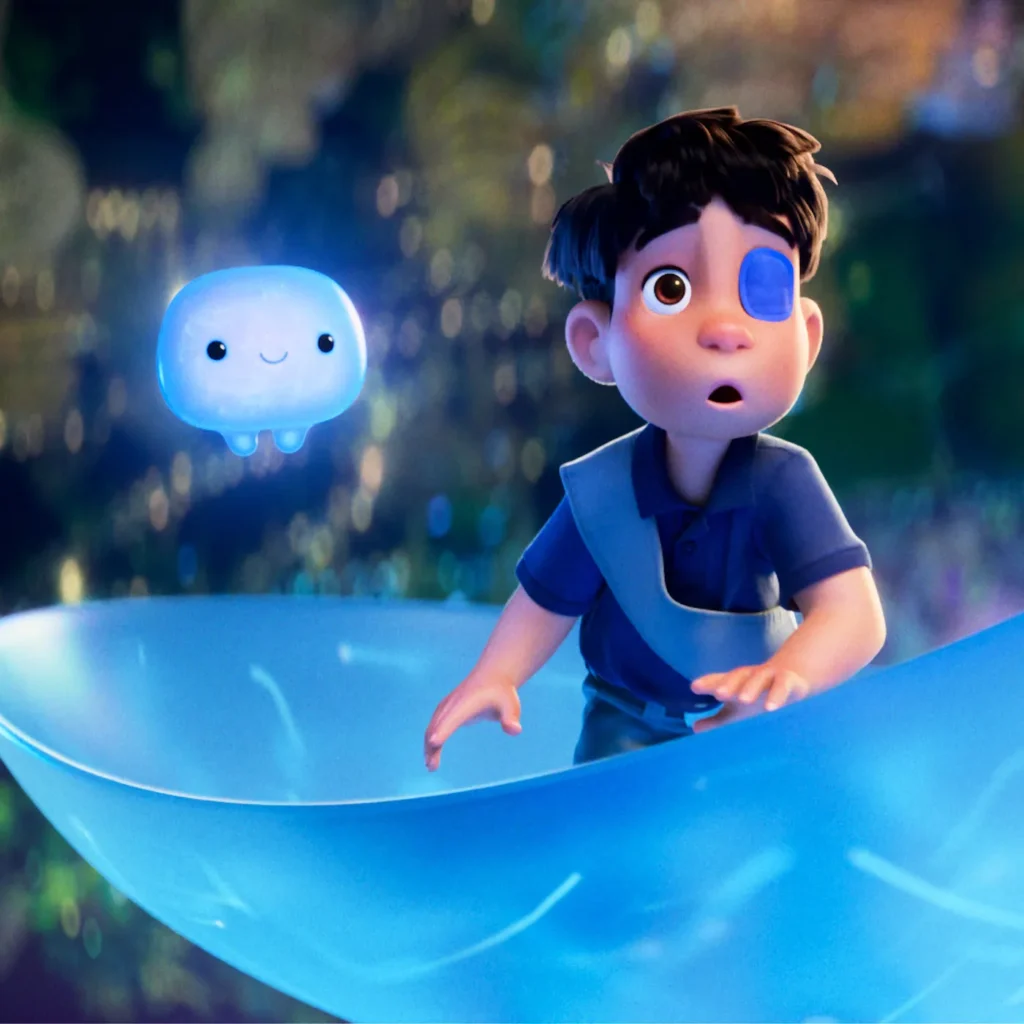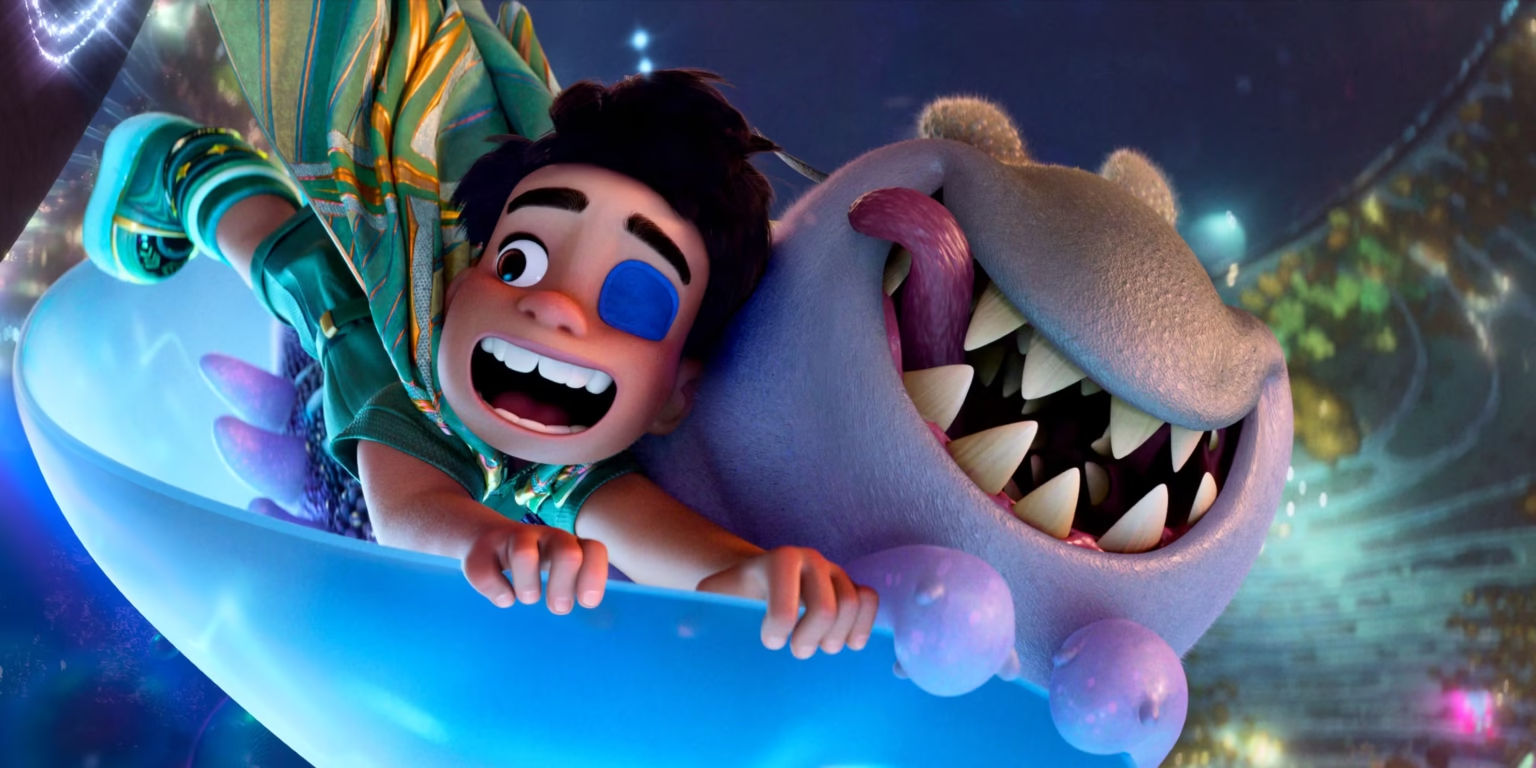Elio Box Office Flop Signals Trouble for Original Animated Films
Elio box office flop headlines are dominating conversations in Hollywood, as Pixar’s latest original film failed to take off at theaters. Meant to be a heartfelt cosmic journey, Elio opened to just $21 million domestically and $14 million globally — the worst box office debut in Pixar’s history. This dismal performance is particularly stark when compared to franchise-driven competitors like How to Train Your Dragon, which nearly doubled its earnings in its second week.

Just a year ago, Inside Out 2 soared to nearly $1.7 billion worldwide, helping fuel optimism for a post-pandemic revival of family films. But those box office hits — including Despicable Me 4, Moana 2, and Sonic the Hedgehog 3 — all have one thing in common: franchise familiarity.
From Innovation to Indifference – Why Original Ideas Struggle
Despite past hits like Toy Story, Frozen, and The Lion King, today’s original family films are floundering. The Elio box office flop underscores this broader trend — it’s not just a Pixar problem. Across Hollywood, the only successful “originals” are based on books or graphic novels, such as The Bad Guys and The Wild Robot. Films built on wholly new ideas and without pre-established branding are struggling to gain traction with audiences.
Recent misfires like Strange World, Wish, and Onward from Disney, as well as DreamWorks’ Ruby Gillman: Teenage Kraken and Illumination’s Migration, have further highlighted the market’s shift. And just like the Elio box office flop, titles such as Soul and Turning Red were quietly diverted to Disney+ rather than tested in theaters..
Post-Pandemic Problems: Why Elio’s Failure Wasn’t Just About Timing
Some blame the pandemic for a shift in viewing behavior. The lockdowns accustomed families to home viewing, shrinking the market for theatrical releases. However, this doesn’t fully explain the repeated underperformance of original titles. At the core of the issue may lie the content itself—particularly the complexity of modern plots.
Narrative Overload: How a Confused Plot Contributed to the Elio Box Office Flop
Elio tells a charming story of a lonely boy mistakenly identified as Earth’s ambassador by aliens. But its storytelling is erratic. The plot bounces between Earth, an alien craft called the Communiverse, a villain’s spaceship, and back again—multiple times. A clone subplot adds further confusion.

Multiple directors and three credited screenwriters hint at a disjointed creative process. Originally Adrian Molina’s personal story, the project expanded to include Domee Shi and Madeline Sharafian as directors. The result? A narrative that feels overcooked, its emotional core buried under structural sprawl.
Too Many Cooks: How Studio Interference Fueled the Elio Box Office Flop
Animated films are expensive—Elio reportedly cost $150 million. With that kind of investment, studios often opt for heavy oversight and constant retooling. Writers are brought in to refine, expand, and smooth over any rough edges. But the over-polishing process can remove spontaneity and coherence.
British film critic and producer Jason Solomons observes, “You can feel the mechanism creaking… maybe a little craziness, a rough edge here and there, would do them the world of good.”
Franchises Offer Familiar Comfort in a Distracted World
Sequels and remakes may not always offer brilliant storytelling, but they don’t need to. Today’s audiences are more distracted than ever. With phones in hand and shorter attention spans, audiences are drawn to what they already know. When watching Lilo & Stitch or Minecraft: The Movie, they don’t need to pay close attention—they already know the plot beats.
This explains why films like Moana 2 or Mufasa: The Lion King attract more viewers than anything new. It’s not just branding; it’s cognitive ease. Parents feel safer spending money on a known quantity, while kids gravitate toward familiar characters.
When Stories Lack Simplicity and Heart
Pixar’s early success hinged on simple, emotionally resonant stories. Finding Nemo is literally about finding Nemo. Up opens with a four-minute montage that conveys a lifetime of emotion. In contrast, films like Soul and Strange World require extensive explanation to summarize. Their thematic complexity might engage adults, but they lose children along the way.

The most powerful family films strike a balance between depth and accessibility. By trying to do too much, modern originals risk doing very little that truly connects.
The Pressure to Launch Franchises
Studios don’t just want successful films—they want franchises. Merchandise, streaming series, theme park rides, spin-offs, and Broadway adaptations are the end goal. But for a new franchise to succeed, it must start with a story worth retelling. Films like Frozen weren’t engineered for success—they earned it by touching hearts. Studios now chase that formula mechanically.
The disappointment of Elio reflects an industry overreliant on data, focus groups, and formula. Yet audience connection remains unpredictable.
A Glimmer of Hope?
There’s still a path forward for original children’s films. Success won’t come from massive budgets and endless rewrites. Instead, studios need to trust in the power of a well-told, emotionally sincere story. The next Frozen or Toy Story won’t be created in a committee—it’ll be sparked by a singular vision with a universal message.
Until then, audiences will continue to vote with their wallets, and unfortunately for Elio, the vote is clear.





I really like reading through a post that can make men and women think. Also, thank you for allowing me to comment!